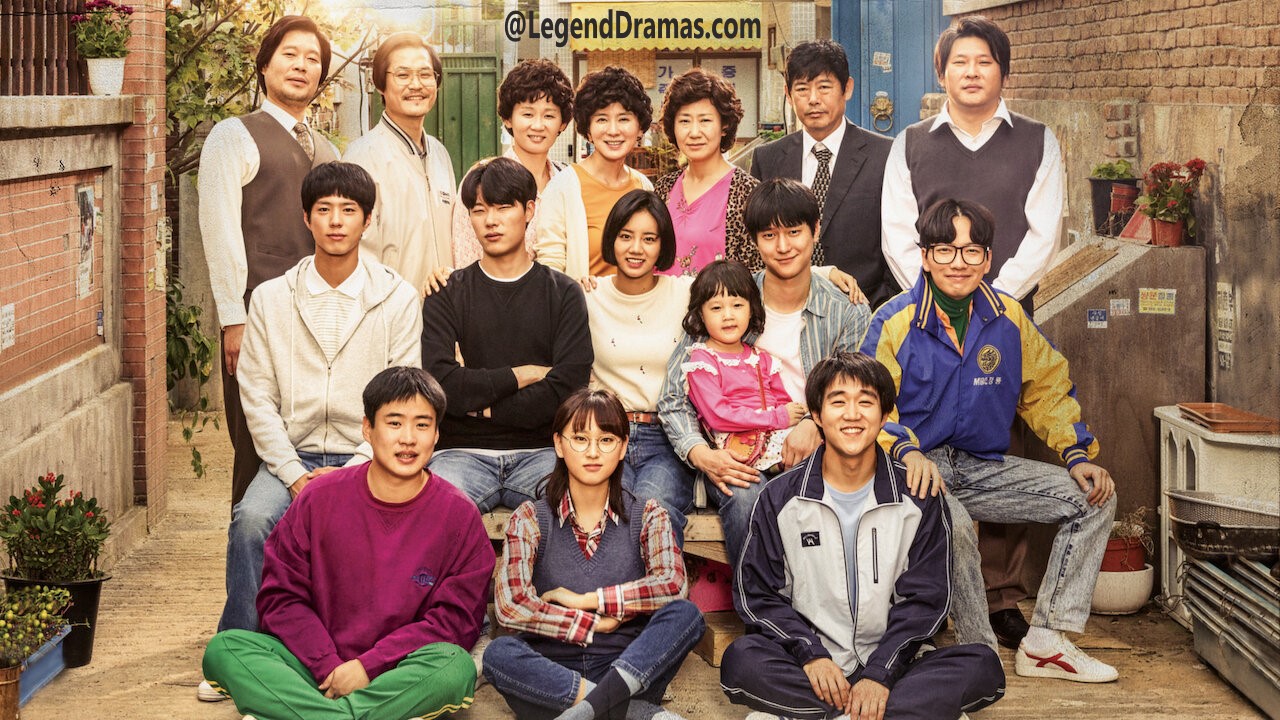Introduction
Korean dramas have a remarkable ability to transport viewers to different worlds and time periods, touching their hearts with compelling stories and memorable characters. Among the many K-dramas that have left an indelible mark on the hearts of viewers, “Reply 1988” stands as a timeless masterpiece. Premiered in 2015, this drama brilliantly captures the essence of life in the late 1980s. Taking viewers on a nostalgic journey filled with laughter, tears, and heartwarming moments. In this comprehensive article, we will delve deep into the world of “Reply 1988,”. Exploring its plot, characters, cultural significance, and the reasons behind its enduring popularity. “Reply 1988: A Timeless Journey Through Nostalgia, Friendship, and Family”
Plot Overview
“Reply 1988” is the third installment in the popular “Reply” series, which includes “Reply 1997” and “Reply 1994.” The drama is set in the neighborhood of Ssangmun-dong, Seoul, during the late 1980s. It revolves around the lives of five close-knit families and their children, who are in their late teens and early twenties.
The story is primarily told from the perspective of Sung Deok-sun (played by Lee Hye-ri), a spirited and witty young woman. Deok-sun’s family includes her loving but quirky parents. Her intelligent older sister Sung Borah (played by Ryu Hye-young), and her annoying yet endearing younger brother Sung No-eul (played by Choi Sung-won).
Deok-sun’s tight-knit group of friends, which includes her neighbor Choi Taek (played by Park Bo-gum). Kim Jung-hwan (played by Ryu Jun-yeol), Ryu Dong-ryong (played by Lee Dong-hwi), and Sung Sun-woo (played by Go Kyung-pyo), are at the heart of the drama. Together, they navigate the ups and downs of adolescence, forming deep friendships and discovering the complexities of love.
The drama is framed by an adult Deok-sun (voiced by Lee Il-hwa), who looks back on her youth with nostalgia, humor, and a sense of fondness. The narrative unfolds through a series of flashbacks, painting a vivid picture of life in the late 1980s.
Themes of Nostalgia and Friendship
At its core, “Reply 1988” is a story of nostalgia and the enduring bonds of friendship. The drama skillfully captures the essence of the late 1980s, recreating the fashion, music, and cultural references of the era. Viewers are taken on a nostalgic journey down memory lane, evoking a sense of longing for a simpler time.
The friendships portrayed in the drama are authentic and heartwarming. The bond among Deok-sun and her friends is a central theme, emphasizing the idea that true friendship transcends time and circumstances. The camaraderie, loyalty, and support they provide each other create some of the drama’s most touching and memorable moments.
Character Development and Relatability
One of the strengths of “Reply 1988” lies in its well-developed characters, each with their unique quirks, dreams, and challenges. The drama takes its time to explore the growth and evolution of these characters, making them relatable and endearing to viewers.
Deok-sun, the main protagonist, is a relatable character who undergoes significant personal growth throughout the series. Her journey from adolescence to adulthood is marked by self-discovery, love, and the pursuit of her dreams. Her relationships with her family and friends are central to her development.
The male leads, Taek, Jung-hwan, Dong-ryong, and Sun-woo, each have their own individual journeys and complexities. Their characters are well-rounded, making it easy for viewers to become emotionally invested in their lives and relationships.
The families in the drama also play a crucial role.
Cultural Significance and Realism
“Reply 1988” is celebrated for its cultural significance and realism in portraying life in the late 1980s South Korea. The drama touches on various aspects of that era, including the influence of popular music, the emergence of consumerism, and the importance of communal living.
One notable aspect is the way “Reply 1988” addresses the economic challenges faced by many families during that period. It explores the aspirations and struggles of ordinary people, showcasing the value of hard work, community support, and the pursuit of dreams.
The drama’s attention to detail is evident in its portrayal of the neighborhood and its residents.
Impact and Enduring Popularity
“Reply 1988” has had a profound impact on viewers, both in South Korea and internationally. Its portrayal of everyday life and the universal themes of friendship, family, and love resonate with audiences of all backgrounds. The drama has inspired fan clubs, reunions of cast members, and even tourism to the neighborhood of Ssangmun-dong.
The performances of the cast, including breakthrough roles for actors like Lee Hye-ri, Park Bo-gum, and Ryu Jun-yeol, received critical acclaim. The chemistry among the cast members, both on and off-screen, contributed to the drama’s success.
“Reply 1988” was recognized with numerous awards and accolades, including the prestigious Baeksang Arts Awards. Its enduring popularity is a testament to its timeless storytelling and relatable characters.
Conclusion
“Reply 1988” is more than just a K-drama; it’s a heartfelt journey through nostalgia, friendship, and family. Its ability to evoke a sense of longing for the past while delivering a universal message about the enduring bonds of love and friendship has endeared it to viewers around the world.
As we look back on the late 1980s through the lens of this remarkable drama. We are reminded that the true essence of life lies in the moments we share with loved ones and the friendships that withstand the test of time. “Reply 1988” continues to hold a special place in the hearts of its fans.

